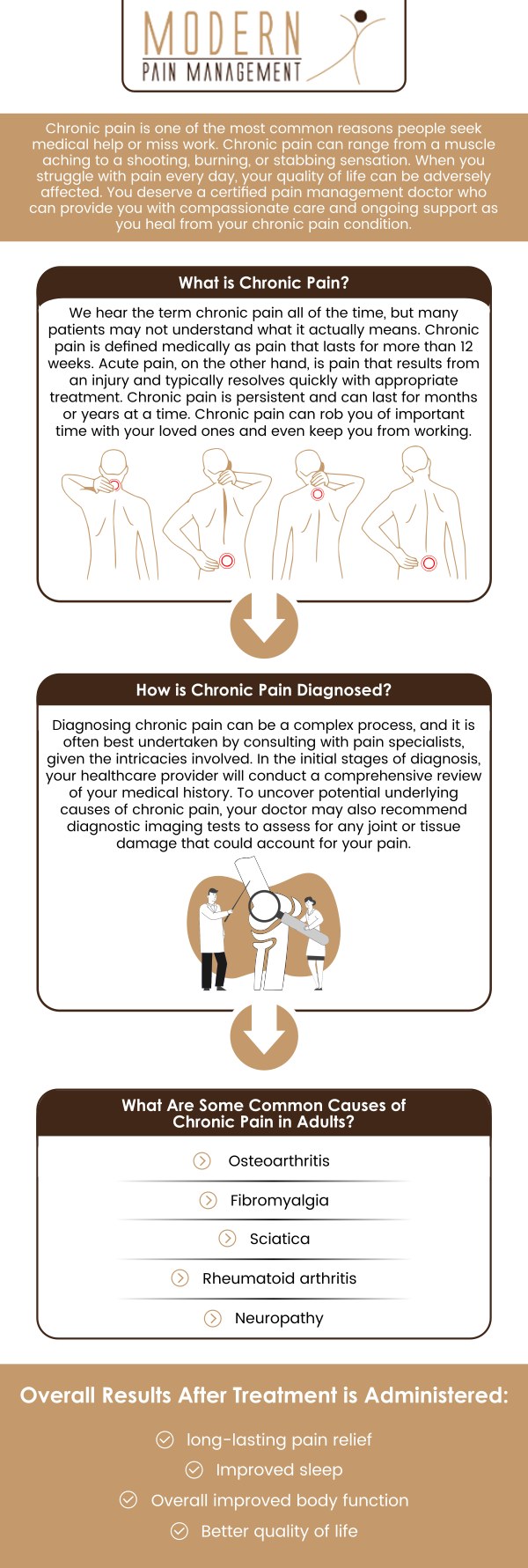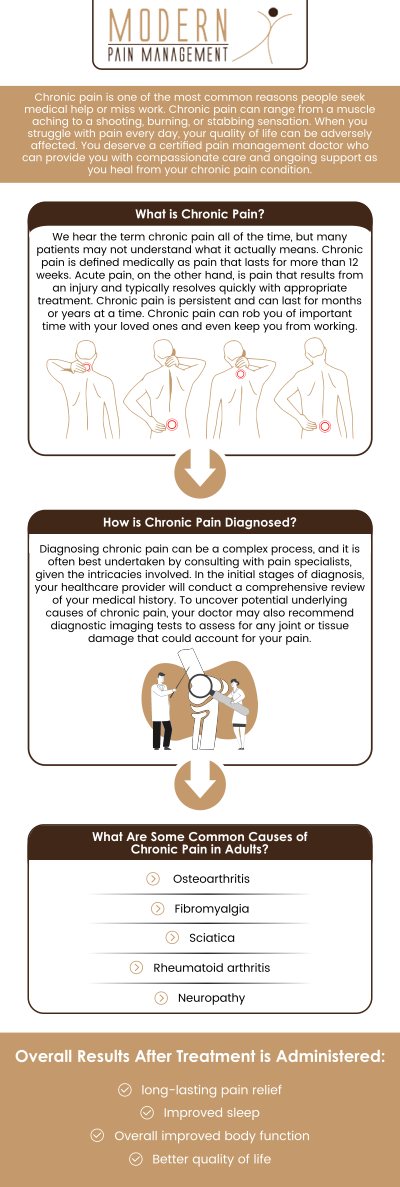What to Do When Chronic Pain Becomes Too Much?
There are several levels of chronic pain. It can last for several days or come and go. Your daily life and mental health might be significantly impacted by chronic pain. However, you can treat it with our physician, Dr. Atallah, DO, and his staff. Visit us to relieve your pain symptoms. We have convenient locations to serve you in Houston TX and Sugar Land TX. For more information, please contact us or book an appointment online.




Table of Contents:
How do you deal with severe chronic pain?
What can be done when chronic pain gets too much?
What does long-term chronic pain do to a person?
Where do people have chronic pain?
Dealing with severe chronic pain can be incredibly psychologically and physically stressful. Living in constant discomfort often significantly affects your daily life and how much you enjoy yourself. If you are affected by severe chronic pain, you should see a pain management specialist. These professionals have specialized expertise in managing symptoms caused by chronic and painful conditions.
To help you manage your discomfort, pain management physicians can deliver various treatments, such as physical therapy, prescription medications, nerve blocks, steroid injections, and radiofrequency ablation. The right approach for your pain will depend on its severity, its location, and your medical history.
If you are tired of living in chronic pain and ready to find relief, the team at Modern Pain Management can help you reduce your symptoms to live with more comfort. To get started on your journey to effective pain management, schedule a consultation with one of our experts.
Various approaches can be used to address severe pain that is affecting your quality of life. If you notice new or worsening pain, you should seek a prompt evaluation by a healthcare professional. When pain becomes persistent, it can quickly begin to interfere with many aspects of life, creating a vicious cycle. Chronic pain can lead to a state called the “terrible triad,” which consists of sleeplessness, suffering, and emotional distress. To prevent reaching this state, it’s important to seek treatment at an early stage. If you are already in this cycle, our experts can help you reduce your discomfort and access the resources you need to improve your physical and mental wellness.
Some of the treatments that can be used to manage severe chronic pain include:
• Physical therapy – Pain management specialists can alleviate pain, stiffness, and related symptoms through physical therapy exercises. This technique focuses on stretching the injured part of the body.
• Medications – The type of pain medication recommended for you will depend on your medical history and the severity of your symptoms. Milder forms of pain can be managed with over-the-counter drugs, while more severe discomfort is usually treated with prescription medications.
• Trigger point injections – This technique is used to treat painful muscles or muscle knots in the arms, legs, neck, and lower back. Trigger point injections can be used for conditions such as fibromyalgia and myofascial pain syndrome.
• Spinal cord stimulation – This method is typically used to treat back and limb pain. A spinal cord stimulator is surgically implanted in the body. The device is used to block pain signals to increase your comfort.
Long-term chronic pain can be detrimental to a person’s physical and mental well-being. It can impede an individual’s ability to socialize, work, and participate in once-loved activities. This can lead to feelings of isolation, depression, anxiety, and frustration. Some of the consequences of long-term chronic pain include:
• Mental health concerns, such as major depressive disorder (MDD), anxiety disorders, and suicidal ideation or attempts.
• Impaired sleep.
• Impaired sexual function.
• Impaired cognitive function, including memory and attention.
• Lower quality of life.
Overall, it’s important to see a pain management doctor to prevent complications associated with unmanaged chronic pain. By working with an expert, you can maintain a good quality of life despite your diagnosis. The team at Modern Pain Management is here to help you address your symptoms to avoid cognitive impairment, sleep problems, and mental health concerns.
Chronic pain can occur anywhere in the body; however, some of the most common places where people experience persistent pain include:
• Muscles.
• Lower back.
• Upper back and neck.
• Face and head.
• Knees.
• Shoulders.
• Hips.
• Limbs.
You should take note of where you experience pain in your body and how severe it is. By keeping track of your symptoms, you can provide the pain management specialist with important insights to make a diagnosis. We have convenient locations to serve you in Houston TX and Sugar Land TX. For more information, please contact us or book an appointment online. We serve patients from Houston TX, Sugar Land TX, Pearland TX, Jersey Village TX, Missouri City TX, Stafford TX, and Richmond TX.
Check Out Our 5 Star Reviews

ADDITIONAL SERVICES YOU MAY NEED




